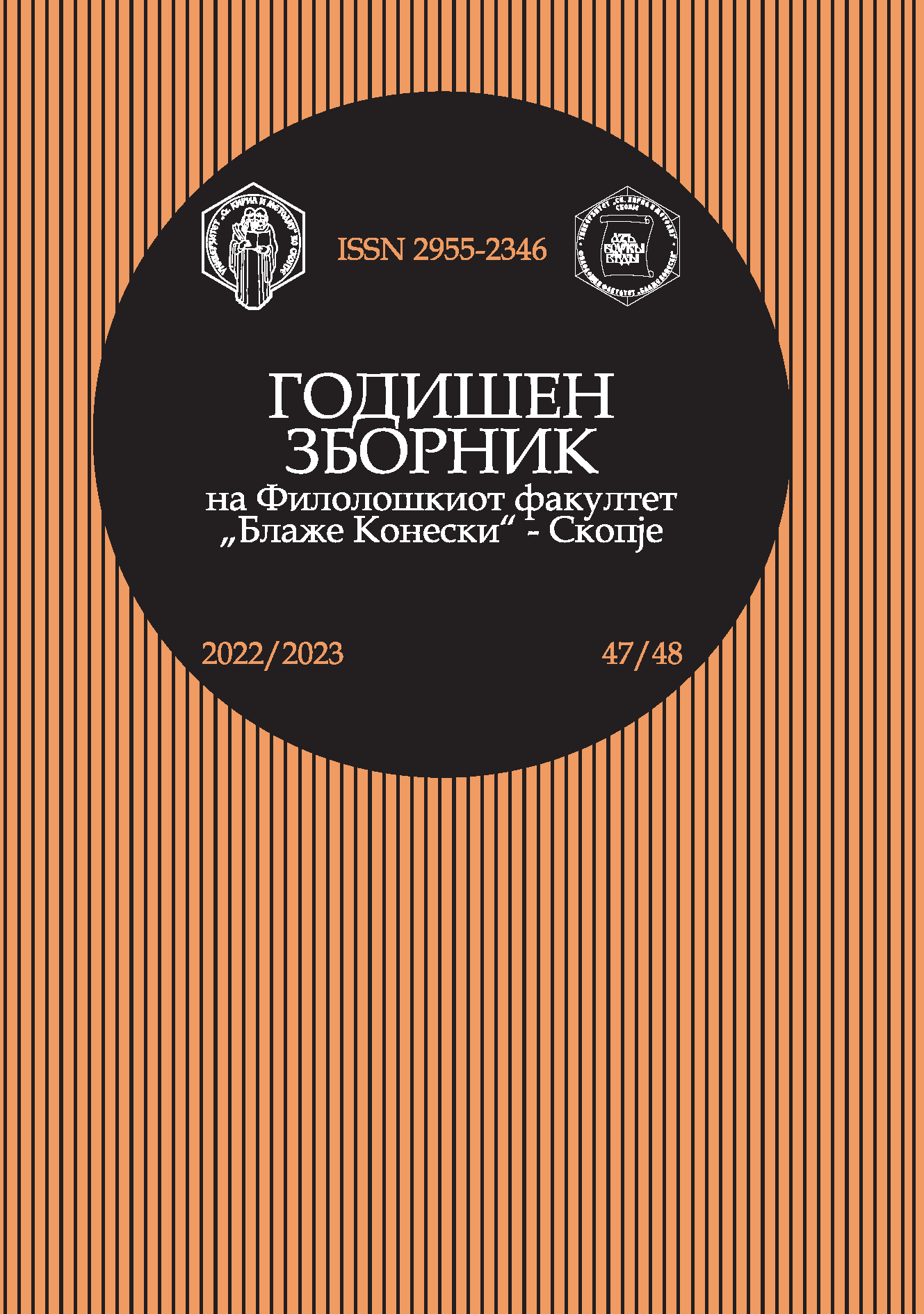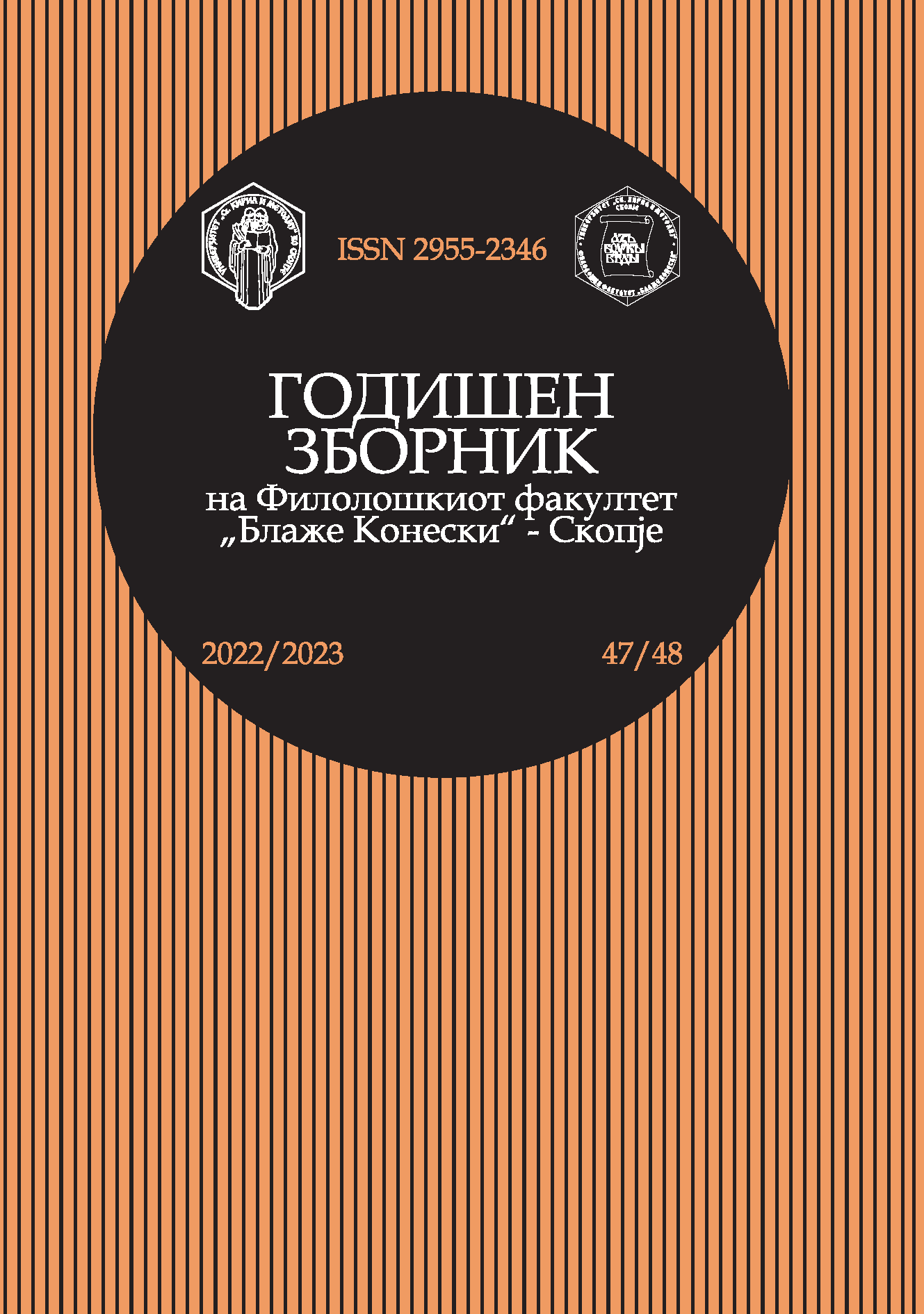Компаративни аспекти на песната на албански и на македонски
Черешна се од корен корнеше
ДОИ:
https://doi.org/10.37834/GZF2247-48281bКлучни зборови:
лирска песна, компаративни аспекти, черешна, корен, мома, метафораАпстракт
The subject of this study is the song, Qershia prej rranje shkuleshte (Черешна се од корен корнеше) a song that is sung in Debar at a wedding, at the moment when the bride enters the yard; among the Macedonians, it is sung at the moment when the bride leaves the house and goes to her husband. So, this song is sung in Albanian and Macedonian language, so I want to compare the lyrics in both languages to highlight the influences that two completely different languages have from each other, but when they share the same country, two nations coexist in harmony, each receiving and giving from their culture. Then, when the poem is borrowed, it is not taken completely and simply as a literal translation, but is adapted to the nature, rhythm and specifics of the language.
Comparative literature is a method of action, testing hypotheses, a way of examining texts, - says Yves Chevrel.
This is what I will try to do by studying a song that is sung in two different languages, trying to understand why exactly this song managed to break through linguistic boundaries and become so loved not only in Macedonia, but also in other Balkan countries.
When analyzing this song, I don’t aim to find the roots or how old this song is, because it doesn’t matter who first created it, but what matters is the motif, the figures and the emotions that the song can convey.



